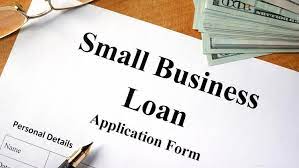A commercial property loan is very different from a loan for residential property. Most people are able to get approved for a home loan, but only a few people know how to borrow money through commercial property loans in order to buy their office/workspace.
Commercial property loans may be used only for business purposes, such as buying office space, hotel rooms, restaurant spaces, and office complexes. There are two types of commercial property:
1. Office space
2. The retail outlet
These two categories can be further divided into ready to use/occupy and under construction.
These properties are usually overpriced and costly because they are commercial. They are usually purchased by businessmen looking to purchase office space/workspace. Investors also give them to companies/firms in which they invested.
The lender is more positive about approving the loan to the investor when the borrower wants to buy commercial property. This was the lender’s view. Let’s now look at the borrower’s.
Factors That Affect Approval of a Commercial Property loan
- When taking out a commercial property loan, there are some things you need to remember as a borrower. Keep the following documents handy: documents for income statements, address proof, ID proof, tax returns, and documents to prove your identity.
- The processing fees are another thing to be considered. The processing fees for a commercial property loan are 1% of the amount. Some lenders will reduce the processing fees by offering different deals. The most important aspect of any loan is the “interest rate”. This is where the interest rate charged for commercial property loans is typically higher than other property loans. Other fees such as survey fees, loan application fees, overall loan cost, and annual fees are not included.
- The lenders also pay attention to the builder’s reputation and marketability. The lenders pay more attention to details when the property is in construction. This is because the lender needs to ensure that the property is ready for possession on time. The new property is more difficult to finance than the older property. It is much more difficult to get a loan for this type of building because there is high risk.
- The term of a commercial property loan is much shorter than a residential or housing loan. Ten years is the maximum term for repayment of a loan for commercial property. The loan margin is also not too low. The lender company will also give you specific instructions that must be followed.
- Lenders also adhere to the specifications. For example, a borrower will only be approved for a loan if the area is less than a square foot. Different lenders and companies have different policies and rules.
- The “LTV Ratio”, also known as the Loan-to-Value ratio, is another factor that can help you get a commercial property loan. This ratio is used to determine the loan’s value in relation to the property’s value. Because of the lower risk and greater stake in the property, borrowers with lower loan-to-value ratios will likely be eligible for the loan. Commercial property loans are allowed to be financed at a range of 65% to 80%.
- Prepayment penalties are often imposed by lenders on commercial property loans. Commercial property loans have a restricted repayment schedule. Borrower is prohibited from making full payment of the loan prior to a set period of time. In some cases, this period is 5 years. The borrower can only repay the loan after that period. The penalties for choosing to pay cash in treasury securities over cash are higher.
The creditworthiness, collateral, income tax returns, and 2 to 3 years’ bank statements are the most important aspects of a commercial property loan. LTV ratio and debt-service coverage ratio, which are also crucial factors in getting approved for commercial property loans, are discussed previously.




